I have implemented Secure Web hook features for my Spring Boot application(Java).
For that I have created "Subscription" with below JSON.
String subscriptionMessageTemplate = "{\"changeType\": \"created,updated\",\"notificationUrl\": \"%s/notify/messages\",\"lifecycleNotificationUrl\":\"%s/notify/messages/lifeCycle\", \"resource\": \"/teams/{id}/channels/19:{id}@thread.skype/messages\", \"clientState\": \"secretClientValue\",\"includeResourceData\": true,\"encryptionCertificate\": \"%s\",\"expirationDateTime\":\"%s\",\"encryptionCertificateId\": \"1\"}";
I have used ngrok for public IP:

When I am sending message from the team, I am getting below response.
{
"value": [
{
"subscriptionId": "76222963-cc7b-42d2-882d-8aaa69cb2ba3",
"changeType": "created",
// Other properties typical in a resource change notification
"resource": "teams('d29828b8-c04d-4e2a-b2f6-07da6982f0f0')/channels('19:f127a8c55ad949d1a238464d22f0f99e@thread.skype')/messages('1565045424600')/replies('1565047490246')",
"resourceData": {
"id": "1565293727947",
"@odata.type": "#Microsoft.Graph.ChatMessage",
"@odata.id": "teams('88cbc8fc-164b-44f0-b6a6-b59b4a1559d3')/channels('19:8d9da062ec7647d4bb1976126e788b47@thread.tacv2')/messages('1565293727947')/replies('1565293727947')"
},
"encryptedContent": {
"data": "{encrypted data that produces a full resource}",
"dataSignature": "<HMAC-SHA256 hash>",
"dataKey": "{encrypted symmetric key from Microsoft Graph}",
"encryptionCertificateId": "MySelfSignedCert/DDC9651A-D7BC-4D74-86BC-A8923584B0AB",
"encryptionCertificateThumbprint": "07293748CC064953A3052FB978C735FB89E61C3D"
}
}
],
"validationTokens": [
"eyJ0eXAiOiJKV1QiLCJhbGciOiJSU..."
]
}
Now I want to decrypt data, Can any one help me to how to decrypt data in Java? For certificate generation, I have used my custom method: strong text.
private void generateSelfSignedX509Certificate(KeyPair keyPair) throws Exception {
// yesterday
Date validityBeginDate = new Date(System.currentTimeMillis() - 24 * 60 * 60 * 1000);
// in 2 years
Date validityEndDate = new Date(System.currentTimeMillis() + 2 * 365 * 24 * 60 * 60 * 1000);
// GENERATE THE X509 CERTIFICATE
X509V1CertificateGenerator certGen = new X509V1CertificateGenerator();
X500Principal dnName = new X500Principal("CN=John Doe");
certGen.setSerialNumber(BigInteger.valueOf(System.currentTimeMillis()));
certGen.setSubjectDN(dnName);
certGen.setIssuerDN(dnName); // use the same
certGen.setNotBefore(validityBeginDate);
certGen.setNotAfter(validityEndDate);
certGen.setPublicKey(keyPair.getPublic());
certGen.setSignatureAlgorithm("SHA256WithRSAEncryption");
this.certificate = certGen.generate(keyPair.getPrivate(), "BC");
}